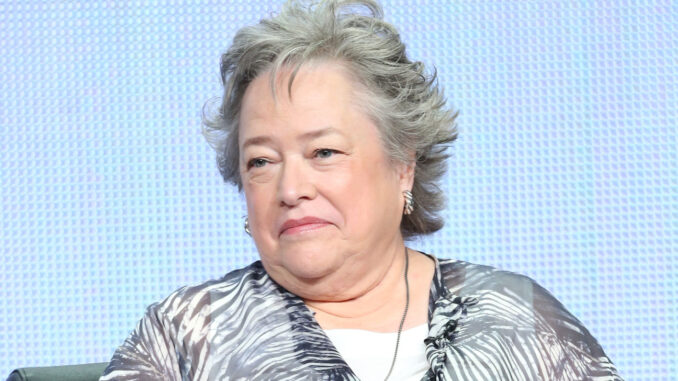
The name Kathy Bates evokes an immediate, visceral response. It conjures images of unshakeable strength, a commanding presence, and a talent so rich and raw it can be terrifyingly real or disarmingly tender. She is the iconic Annie Wilkes, the formidable Molly Brown, the empathetic Evelyn Couch, and the fiercely loyal Dolores Claiborne. Her filmography is a tapestry woven with threads of triumph, resilience, and unvarnished humanity.
But before she became the indelible force we know, before the Oscar, before the widespread critical acclaim, there was a desolate stretch where the very notion of a thriving career seemed to shrivel and crack. This was the landscape of "before Matlock," a period where the whispers of self-doubt grew loud, and the promise of a future in acting felt less like a sunrise and more like a slow, creeping dusk.
For decades, Kathy Bates had been a titan of the New York stage. She’d garnered Tony nominations, critical raves, and the deep respect of her peers. She was a stage animal, embodying characters with a ferocity and nuance few could match. Yet, Hollywood, with its fickle gaze and often narrow definitions of leading ladies, seemed to look past her. The silver screen offered only the occasional bit part, the gnawing gristle of small, forgettable roles that hinted at her talent but never allowed it to truly unfurl.
Imagine the actor’s heart in that time: a vessel brimming with artistic passion, a mind teeming with unexplored characters, and a body aching to perform. Yet, the industry gatekeepers saw her not as a dynamic leading woman, but as a "character actress"—a euphemism that often meant "talented, but not conventionally marketable enough for the big roles." The years stretched like an endless, sun-baked plain, each audition a mirage, each rejection a further depletion of hope. She watched as contemporaries found their footing, as careers blossomed around her, while her own remained stubbornly barren.
The worry wasn't just artistic; it was existential. Acting wasn't a hobby for Bates; it was her calling, her lifeblood. To see it drying up meant a loss not just of livelihood, but of identity. The clock ticked louder with each passing year, the whispers of "too old," "not pretty enough," "missed your chance" growing more insistent. It was the insidious doubt that gnaws at the most resilient spirits, asking: "Is this all there is? Is my well of talent destined to remain untapped by the wider world?"
Then came "Matlock." It wasn't a starring role, or even a particularly meaty one. It was a guest spot, a single episode appearance on a popular television show. For an actor who had honed her craft in the crucible of Broadway, playing a character on a primetime procedural might have felt like a small, almost insignificant ripple in the vast ocean of her ambition. Yet, sometimes, a single drop of water can change everything in a desert.
"Matlock" was not the flood, but it was a sign of life. It was a professional credit, a steady paycheck, and a reminder that she was still working, still visible, still considered viable. It was a validation, however small, that kept the pilot light of her career flickering. It was a confirmation that the industry hadn't entirely forgotten her, that there were still roles, still opportunities, however modest. It was the gentle, much-needed sprinkle of rain that prevented the soil from completely hardening.
The "Matlock" appearance didn't instantly open the floodgates. But it served as a bridge, a consistent presence in the television landscape that kept her name circulating, kept her face recognizable. And then, not long after, the heavens truly opened. Stephen King, having seen her in the film Men Don't Leave, recognized the undeniable power she possessed and insisted she play Annie Wilkes in the film adaptation of his novel, Misery.
The rest, as they say, is history. Misery was a torrential downpour of recognition, washing away decades of obscurity and doubt. It earned her an Academy Award for Best Actress, launching her into the stratosphere of Hollywood's most respected performers. From there, the roles poured in: Fried Green Tomatoes, Dolores Claiborne, Titanic, Primary Colors, About Schmidt, and countless others, each showcasing a different facet of her breathtaking range.
The Kathy Bates we celebrate today is a testament to the enduring power of talent, grit, and the refusal to let a perceived drought become an actual desert. "Before Matlock" represents not just a period of her life, but a universal struggle many artists face—the lonely, often thankless journey through obscurity, battling internal and external skepticism. Her eventual triumph reminds us that sometimes, the smallest sprinkle of opportunity can sustain a spirit long enough for the true downpour to arrive, transforming a landscape of barren doubt into a flourishing garden of legendary achievement.
